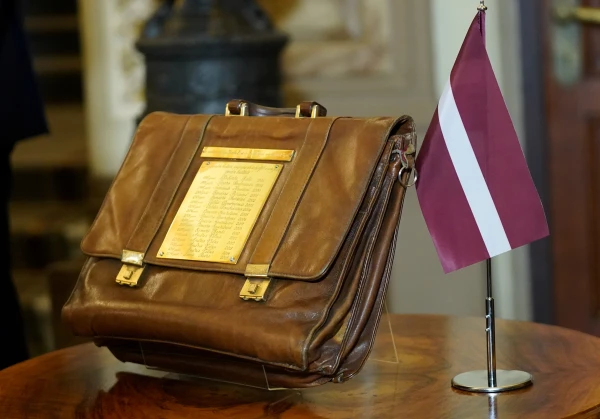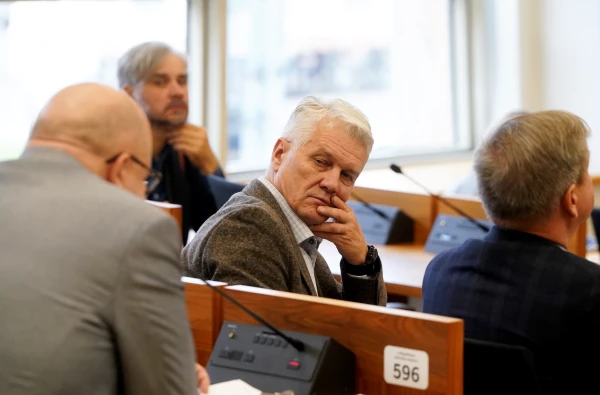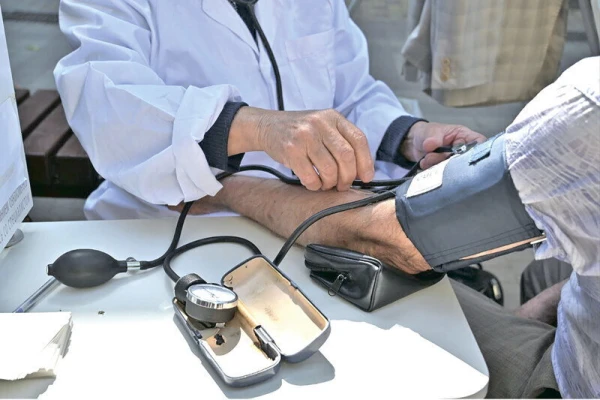
The government, during an extraordinary meeting, reviewed several more bills included in the so-called budget package. This time, ministers from all coalition forces demonstrated remarkable unanimity and quickly approved all these documents.
However, this "unity of souls" is deceptive, as, firstly, secondary issues were discussed yesterday, and secondly, the main surprises of the party were left "for dessert," that is, when the 2026 budget will be considered in the Saeima. But let's take it step by step.
Deferred Pensions
So, yesterday, primarily the ministers approved initiatives within the framework of the so-called pension reform for years of service. This reform is, of course, extremely unpopular — primarily in the eyes of those it directly affects. Moreover — and this is the strangest part — the reform will not bring any significant savings in budget funds in the near future.
Let us remind you that a transitional period is being introduced — changes will start from January 1, 2027. The retirement age for years of service for most of those entitled to such a pension is equated to the retirement age for old-age pensions — that is, to 65 years. Yes, over time, the state will spend less on paying such special pensions, but this will not affect the 2026 budget, the 2027 budget, or even the 2030 budget...
So why the rush, especially considering that in a year the Saeima and the government will change, and it would be logical for these politicians, who will receive a new mandate of trust from the people, to carry out such a reform?
The Calm Before the Storm
But what is done is done. Most likely, this reform will be approved in the Saeima as well. However, the most interesting part may begin afterwards. Representatives of the "Progressive" party yesterday again "suspected" their partners from the Union of Greens and Farmers of attempting to submit their proposals to the 2026 budget "between the first and second readings."
They say that after the "green farmers" violated the coalition agreement by supporting the opposition on the issue of withdrawing from the sacred Istanbul Convention for the "progressives," anything can be expected from them, the "green farmers"...
And yesterday, one of the leaders of the "green farmers," Minister of Economics Viktor Valainis, confirmed these "fears" of their partners in an interview with Latvian Radio: "I can either upset or please the 'progressives,' but our deputies in the Saeima will try to submit amendments — for example, to reduce budget expenditures — and thus improve the budget. We did this both in opposition and when we were in the ruling coalition," said V. Valainis.
No Money for Deputy Quotas
To be fair, the submission of amendments to the 2026 budget project by ruling deputies is a rare occurrence in Latvian politics. Especially when we talk about significant amendments. Previously, amendments were submitted according to an agreed scenario — within the framework of so-called "deputy quotas." But after a series of scandals, politicians abandoned these deputy quotas. According to the ruling parties, there will be no such quotas this time either — and there is no "extra" money for this in the budget at all.
The question arises: what amendments can the "green farmers" submit to make the budget at least a little more attractive to the people and thus finally convey good news to the voters?
Rumor has it that the "green farmers" will try to find funds to maintain rural schools, as well as to secure some additional money for healthcare — with an emphasis on regional hospitals. However, in this case, according to the law, which, as in all recent years, will be adopted before the budget is approved, the "green farmers" will need to propose a source for obtaining additional funds. In other words — from whom to take in order to redistribute funds for medicine and rural schools.
Small Gifts to the People
In any case, the budget adoption process will be very complicated. However, nothing indicates that the "internal opposition" in the form of the "green farmers" intends to torpedo the budget and thus bury the Siliņš government. Most likely, the 2026 budget will be adopted, and according to schedule — in the first days of December.
For now, the only good news for the people in the context of the budget can be mentioned is the increase of the minimum wage and the non-taxable minimum by 40 euros, as well as the introduction of an experiment to reduce VAT to 12% on bread, milk, eggs, and poultry meat. However, this experiment will not start on January 1 of next year, but only on July 1.
Additionally, the budget provides for funds to increase child birth and childcare benefits until the child reaches one and a half years of age. How much this will help improve the demographic situation is hard to say… However, this is the first increase in these benefits in the last 13 years!
Let us remind you that the lion's share of additional funds in the budget will go to defense, the budget deficit will amount to as much as 3.3%, and the national debt will approach 55% of GDP — this is historically the largest debt of our country.
And Plus an Absurd Initiative
In hopes of gathering additional funds for the budget, the ruling parties have taken up an old measure — excise taxes on alcohol, cigarettes, gambling, and natural resources will be increased.
The height of absurdity was the proposal to deprive books and periodicals, including electronic publications published in Russian, of the preferential VAT rate. Against such an initiative, the Ministry of Culture was opposed by publishers, distributors of newspapers and magazines, and the confederation of employers. Let's see what the Saeima will say now...
Spirit and Body
To adopt the 2026 budget, the ruling parties will need to ensure strict coalition discipline. Specifically — that all deputies supporting the government are present in the plenary hall during the consideration of the 2026 budget and the budget package.
To this end, all foreign trips will be canceled during the budget consideration period in two readings. It cannot be ruled out that even sick deputies will be asked to "gather their strength" and come to work, as the ruling parties, let us remind you, have a minimal majority in the Saeima.
It is noteworthy that this week, Andris Vilks (Union of Greens and Farmers) will resign his deputy powers, as he has not appeared in parliament for a long time due to health reasons. His place will be taken by veteran Latvian politician Jānis Dinevičs, who was a deputy of the Supreme Council during the historical period — from 1990 to 1993.
It seems that in the coalition, a healthy spirit is no longer as important — the main thing is to have a healthy body that can vote correctly.














